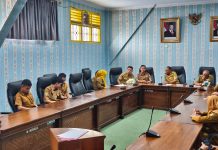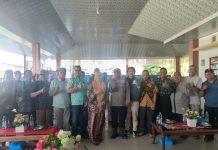I didn’t realise how fragile my healthcare system was until my GP went on maternity leave and it all fell apart.
There have rightly been a myriad articles about the crisis in general practice, detailing the excessive workload, the shift from bulk billing and the drop in doctor numbers. But there have not been many on how it’s affecting disabled and sick people who rely on GPs more than most.
I have been lucky enough to have had a really great GP for the last few years. She is kind, funny, curious and non-judgmental, and works so, so hard. She and I have managed my complex and administratively tough healthcare through a number of crises, and then the pandemic.
My GP has acted as the linchpin for my care as I visit an ever-increasing number of expensive specialists who don’t listen, don’t talk to each other, and aren’t interested in my ongoing healthcare. Some specialists have said they can’t help, or don’t know what to do, or that nothing is available to treat me so I shouldn’t come back. Others have treated one part of my body with little consideration of the impact on other parts and how they respond to that particular treatment.
When each letter from a specialist arrived, my GP and I would puzzle through it, trying to understand what it meant and how it interacted with other letters, and work out what on earth I was meant to do now.
She juggled me through 12 months of kidney failure; adjusting medication, doing more tests, checking with me every few weeks to see how much more I could handle. We weighed up all the equally terrible options each time, eking out the time I had left on a particular drug that was vital to staying alive, but also causing harm.
During the pandemic, she knew I was both more likely to get Covid and at high risk if I was infected. She helped me work through ever-changing information and make good decisions about what I could and couldn’t do.
My GP looked up medical journals and asked colleagues about good specialists, liaised with the local hospital and worked out how I could access vaccines and antivirals for Covid.
This demanding and specialist work in supporting people with chronic illness and disability isn’t acknowledged or funded when we talk about general practice, yet that is often what many of our GPs do, day in and day out.
I have been sick with at least one serious illness since I was a teenager, spending months in hospital, using outpatient clinics the rest of the time. Along the way, I haven’t always had a GP who could do this coordination and support while I navigated through nearly impenetrable medical systems.
In the National Disability Insurance Scheme (NDIS), there are support coordinators that help disabled people navigate through the complexities of the disability system. There are no such coordinators in the health system which is instead designed for occasional or emergency care, rather than for chronic illness.
The 2021 census asked about chronic illness for the first time and found there are millions of us with one or more serious long-term illnesses. My experience isn’t unusual or uncommon, yet there’s little recognition of that in the funding or structures of our healthcare system.
Two months ago, my lovely GP went on parental leave to have her first baby. I knitted her a baby cardigan, made a card and wished her well, with little idea about what was about to happen. After all, the length of a pregnancy is reasonably predictable, so surely the medical practice was prepared.
I wasn’t the only person with complex chronic illness that saw my GP. Over the last few years, she had ended up managing mostly people who needed that kind of healthcare.
But the current crisis in GP funding meant that the practice I had been a patient of for more than 15 years suddenly didn’t have enough GPs and couldn’t attract any in time to manage all my GP’s patients. I was left without a GP, and I suspect I wasn’t the only one. My Covid safety plan disintegrated, and I couldn’t get access to telehealth or my regular medication. All those carefully made plans, gone in a moment.
After months of trying to get an answer about what I was meant to do with no response, I’ve had to go looking for another GP in a different practice. I don’t have my medical records or even an up-to-date list of blood test results or medication, with little idea how I am going to get them.
This isn’t my GP’s fault or even the medical practice, although I am pretty upset with them. I understand the crisis they are in, but that crisis is one for me as well, and many other sick and disabled people. Where are our voices in this discussion?
My healthcare shouldn’t be dependent on the goodwill of a single GP, working ridiculous hours, and it shouldn’t fall apart so quickly.
I want my GP to be well supported, with enough resources to manage and coordinate my care. I want her recognised for the specialist work she does in managing those of us with severe complex chronic illness and disability. I want medical practices to be sustainable, to provide all the allied health and nursing care we need, and to recognise the importance of GPs in the lives of many sick and disabled people.
And I want those of us that need the healthcare system the most to have more of a say about how that system works and how it doesn’t.
El Gibbs is a disabled person, and an award-winning writer with a focus on disability and social issues. Gibbs’s work has appeared in Meanjin, Overland, the Guardian, the ABC and Eureka Street and can be found at elgibbs.com.au
The post I was lucky to have a great GP. Then she went on maternity leave and my healthcare fell apart | El Gibbs first appeared on Eatory.my.id.
















